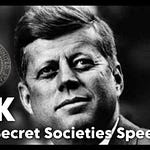Clinton Predicts October Surprise and Media Bias
Hillary Clinton has recently warned of an impending "October Surprise" that could potentially influence the outcome of the upcoming presidential election, specifically targeting Vice President Kamala Harris. This prediction comes with a backdrop of historical context where "October Surprises" have been known to sway voter perceptions in the final weeks before elections. Clinton's mention of this event has stirred discussions on platforms like X, where users are speculating on the nature of this surprise, with some posts mentioning topics like "Pizzagate" and implications of foreign interference from Russia, Iran, and possibly China.
From a media bias perspective, the mention of such an event by a figure like Clinton naturally invites scrutiny over how media outlets might handle the story. Historically, media coverage during election times has often been criticized for bias, either through the volume of coverage given to certain candidates or issues, or through the framing of news stories. For instance, during the 2016 election, Hillary Clinton herself was subjected to extensive media scrutiny, particularly around issues like her email controversy, which some analyses suggested might have been influenced by media bias or assumptions about the election's outcome.
The current discussion around Clinton's prediction also touches on themes of media bias due to her call for the media to report specifically on Trump in a negative light, suggesting an ongoing narrative of media manipulation or bias in political reporting. This reflects broader concerns about how news is curated and presented, especially in politically charged environments, where the balance between informing the public and influencing public opinion can be delicate.
Given these points:
Clinton's Warning: Her prediction serves as a reminder of how last-minute events can impact elections, fueling speculation and possibly setting up a narrative for whatever event might occur.
Media Reaction: Such predictions often lead to a flood of analysis and perhaps over-coverage of the topic, which in itself might be construed as a form of media bias or manipulation of public discourse.
Public Sentiment: On platforms like X, there's a mix of skepticism about the nature of Clinton's claims, with some users questioning her sources of information or the motives behind such a public statement, alongside discussions on the historical precedents of October Surprises.
Implications for the Election: If an October Surprise does occur, how it's covered by the media could significantly sway public opinion, especially given the close race margins projected by election forecasts like those from FiveThirtyEight.
This situation underscores the complex relationship between political figures, media narratives, and public perception, especially in the critical final stretch before an election. The discussion around Clinton's prediction not only focuses on what might happen but also on how it will be reported, highlighting ongoing debates about media bias and its role in electoral politics.
[Video Recorded Statement made on PBS at a Clinton Global Initiative conference]














Share this post